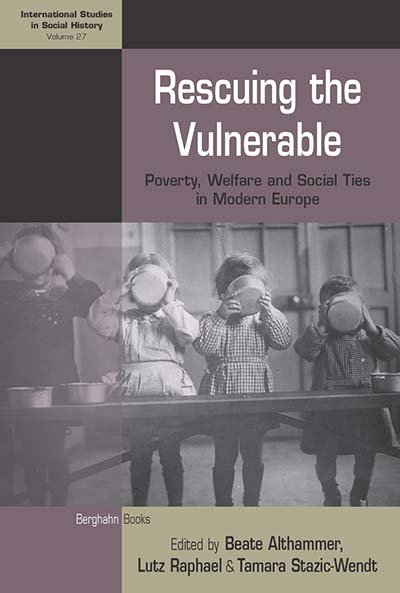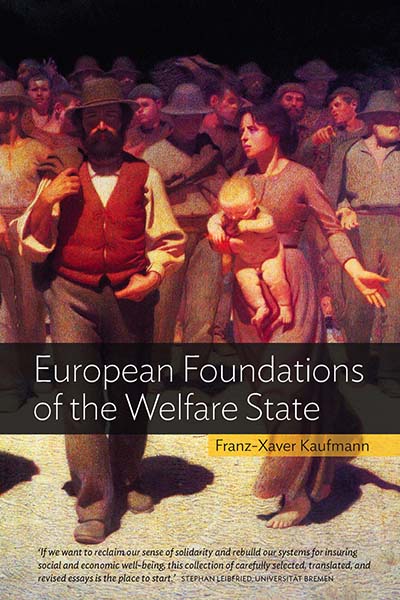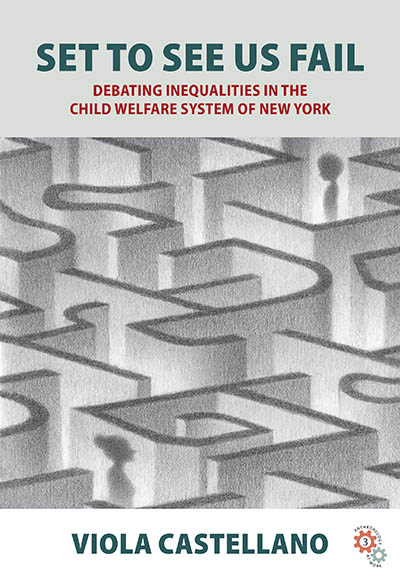
Series
Volume 27
International Studies in Social History
See Related
History JournalsEmail Newsletters
Sign up for our email newsletters to get customized updates on new Berghahn publications.
Rescuing the Vulnerable
Poverty, Welfare and Social Ties in Modern Europe
Edited by Beate Althammer, Lutz Raphael, and Tamara Stazic-Wendt
438 pages, 15 illus., 9 Figures and tables, bibliog., index
ISBN 978-1-78533-136-7 $150.00/£115.00 / Hb / Published (May 2016)
eISBN 978-1-78533-137-4 eBook
Reviews
“…a readable collection of interesting case studies on a topic likely to interest many political sociologists, historians, area specialists, and scholars of poverty and welfare in both the social sciences and the humanities… The breadth and innovative use of archival and literary sources make the work overall a trove of interesting ideas for comparative and historical researchers.” • Contemporary Sociology
“This volume’s focus on the young, the homeless, and the unemployed is particularly welcome given the limited amount of scholarship within histories of poverty and welfare on these groups. The book’s underlying principles are of universal significance and will be of interest to the general reader of welfare history.” • Olwen Purdue, Queen’s University Belfast
Description
In many ways, the European welfare state constituted a response to the new forms of social fracture and economic turbulence that were born out of industrialization—challenges that were particularly acute for groups whose integration into society seemed the most tenuous. Covering a range of national cases, this volume explores the relationship of weak social ties to poverty and how ideas about this relationship informed welfare policies in the nineteenth and twentieth centuries. By focusing on three representative populations—neglected children, the homeless, and the unemployed—it provides a rich, comparative consideration of the shifting perceptions, representations, and lived experiences of social vulnerability in modern Europe.
Beate Althammer is a postdoctoral researcher at the University of Trier and a visiting lecturer at the University of Lüneburg. She is author of Das Bismarckreich 1871-1890 (2009) and co-editor of the volumes Bettler und Vaganten in der Neuzeit (1500-1933) (2013) and The Welfare State and the “Deviant Poor” in Europe, 1870-1933 (2014).
Lutz Raphael is Professor of Contemporary History at the University of Trier. His recent books include Imperiale Gewalt und Mobilisierte Nation: Europa 1914-1945 (2011) and (together with Altay Coskun) Fremd und rechtlos?: Zugehörigkeitsrechte Fremder von der Antike bis zur Gegenwart. Ein Handbuch (2014).
Tamara Stazic-Wendt is a doctoral student at the University of Trier and is currently completing her dissertation on unemployment in rural Germany during the interwar period. Her recent publications include “The ‘New Morocco’ Settlement between Trier and Euren, Germany: Drawing Boundaries and Constructing Deviance, 1925-1933” in The Welfare State and the “Deviant Poor” in Europe, 1870-1933 (2014).


